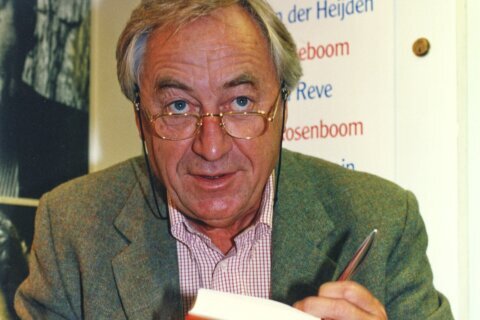WARNING: The following review contains spoilers.
The Iron Throne is melted. The Mother of Dragons is gone. “Game of Thrones” is no more.
After eight thrilling seasons, HBO’s smash-hit fantasy wrapped in Sunday’s series finale — and your reaction obviously hinged on what you thought of last week’s polarizing episode.
Fans were deeply divided by the penultimate episode “The Bells,” which received the lowest Rotten Tomatoes rating in the show’s history at 47 percent. This was due to the disturbing “heel turn” by Daenerys Targaryen, who shifted from fan-favorite heroine to mass murderer after the genocide of countless innocents at King’s Landing at the hands of her dragon.
Detractors even started a petition asking HBO to reshoot the episode — a laughable request if you ask me — while fans insisted that the seeds of her “Mad Queen” turn were planted from the very beginning, foreshadowing a plunge into insanity like her own father, the Mad King.
In any event, we can’t change what happened last week, so with that in mind, given the table that was already set, the series finale mostly tied up the rest of the threads in fitting ways.
Let’s start with the bad. I’m most disappointed in the fate of Cersei Lannister. Such an all-time TV villain deserved a far more gruesome demise than a sympathetic martyr’s death alongside her brother and incest-lover Jaime Lannister (i.e. “Romeo & Juliet”) as the ceiling collapsed.
There was a brief moment in the finale where Tyrion saw Jaime’s golden hand protruding from a pile of rocks and we hoped that he might pull back the stones to reveal that Cersei and Jaime had somehow escaped. Alas, their dead bodies were indeed there, side by side in symbolic womb imagery like twins. If only they had met a more satisfying demise.
Oh well, at least Tyrion maintained the moral high ground, persuading Jon Snow to do the right thing despite his conflicted feelings. His heart still loved Dany but his head had to acknowledge that she had crossed the point of no return, brilliantly shown as she appears with her dragon’s wings spreading behind her — as if she herself has become a monster.
The final showdown between Jon and Dany lived up to the hype, as Dany finally got to see the Iron Throne — much smaller than she expected — but never actually got to sit on it. As she approached Jon asking him to join her, his kiss turned out to be one of betrayal, stabbing her with a sai. The moment was a perfect reveal in the technique of slow disclosure, as we wondered who stabbed who until the camera titled down (i.e. “Double Indemnity”).
At long last, Jon finally took brave action after years of being lucky. Too many times he’s been bailed out of battles (Sansa in “The Battle of the Bastards”), brought back to life (The Red Woman resurrecting him with magic) or overshadowed (Arya killing the Night King).
As Dany lay dying with blood streaking down her face, it was a heartbreaking moment to watch her dragon mourn. It appeared as if Drogon might torch Jon in revenge for killing the Mother of Dragons, but the beast likely couldn’t do it since Jon is a secret Targaryen himself. Instead, Drogon’s grieving flames melted the Iron Throne to molten lava.
The destruction of the throne reiterated the show’s main theme — that mankind wastes far too much time on war. Just like facing the Night King, kingdoms are better off when they band together, put aside their petty differences and stop fighting tribe against tribe.
Which brings us to the important diplomatic scene where democracy trumped monarchy. It was amusing how Samwell’s suggestion of majority rule was initially laughed at, but then was ultimately accepted as the best way forward. As Brandon Stark became King Bran the Broken, he hinted that he knew he’d be there all along, saying, “Why do you think I came all this way?”
While Bran will rule most of the Seven Kingdoms, Sansa inserted herself as queen of an independent North. This “everybody wins” scenario is a cop-out by writers having their cake and eating it too, but it’s a nice a full-circle moment for Bran since being pushed out of the tower in the pilot. I just wish it happened to a less passive character, as Bran grew increasingly frustrating, speaking in hushed tones and uselessly warging into a literal “know it all.”
Bran’s arc was just one of several things that felt rushed or not sufficiently explained in the last two seasons, leaving more to be desired in the back story of the White Walkers and the Three-Eyed Raven. This is probably due to the fact that the show had outpaced the books.
Either way, Brienne of Tarth proved that the winners get to write history — giving a final bittersweet nod to her crush Jaime — while Sam was the one to write the series’ events into “A Song of Ice & Fire,” proving my theory that George R.R. Martin sees himself most in Sam.
In the final analysis, the series was clearly stronger in its first six seasons than its final two, but what a ride it was. Its legacy remains one where anyone could die at any moment, from Ned Stark’s beheading in Season 1 to the Red Wedding in Season 3 to Joffrey’s poisoning in Season 4. It was a gutsy concept, as if Tony Soprano were whacked in Season 1 of “The Sopranos.”
Thanks HBO for navigating uncharted territory — just like Arya sailing toward the horizon.
Go west, young woman.
Valar Morgholis.








